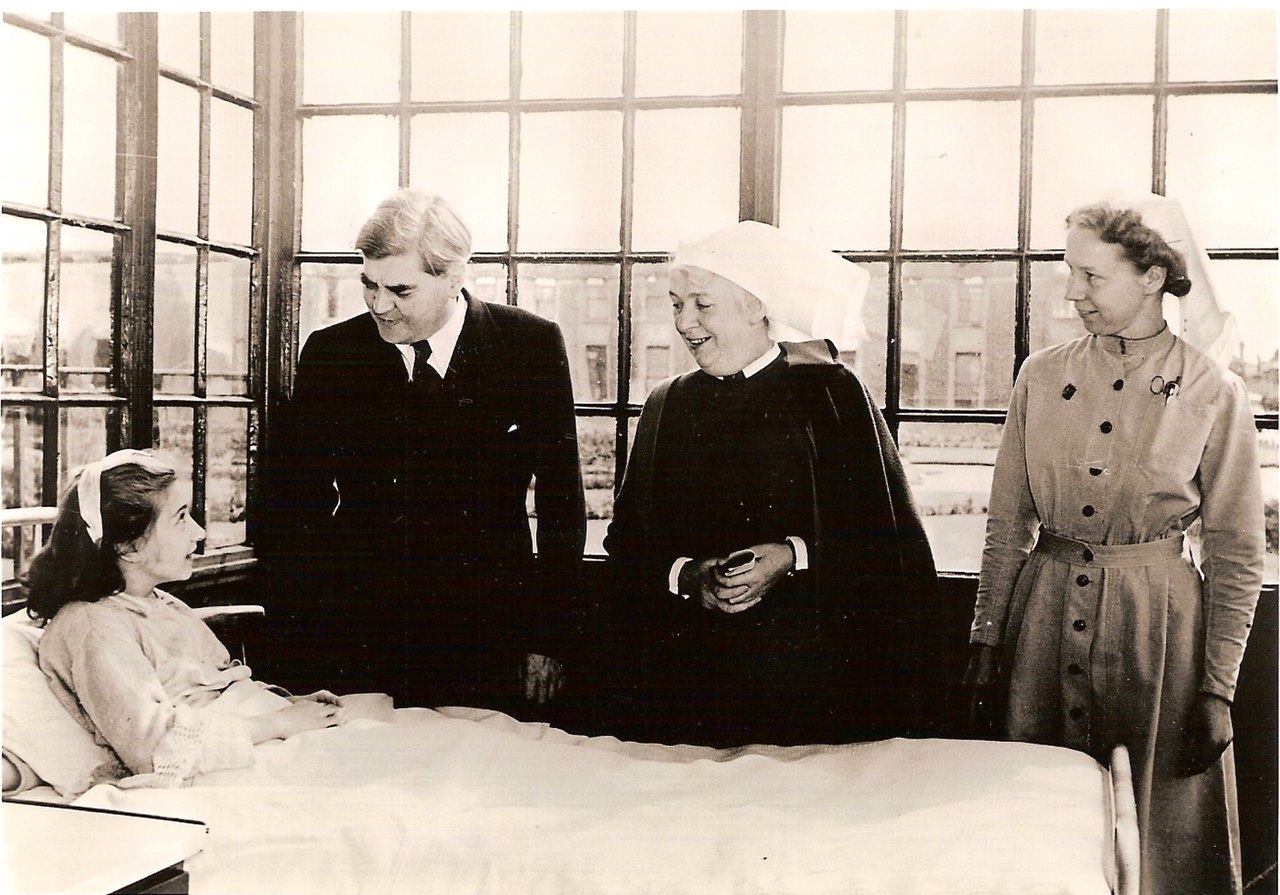2020 is the World Health Organisation (WHO)’s Year of the Nurse and Midwife and as part of our celebrations, CCCU Libraries are writing a series of blogs. We have so far looked at two significant figures in the history of nursing, Florence Nightingale and Mary Seacole, and today we are using the library’s online resources to explore the history of nursing in the UK within one of our most precious institutions, the National Health Service (NHS). As a university we are so very proud of our nursing and midwifery students and graduates and recent global events have reinforced just how vital they are and how much appreciation they deserve.
“Illness is neither an indulgence for which people have to pay, nor an offence for which they should be penalised, but a misfortune the cost of which should be shared by the community.”
The NHS came into being in 1948 in a Britain still reeling from the Second World War. Steps towards universal, free at the point of use healthcare and a comprehensive welfare state had been made prior to this but the resounding decision of the voting public in favour of a post-war Labour government signalled a desire for a state that provided parity of access and opportunity to vital services. In 1942, economist William Beveridge published a report looking into the coordination of social insurance in post-war Britain and it proved revolutionary; Beveridge identified the need for social transformation in the aftermath of wartime devastation and captured a public mood, encapsulated in the sentiment, “The purpose of victory is to live in a better world than the old one”. The country needed to rebuild and that architecture was to include and provide for British people at varying socioeconomic levels in a way never before seen. In addition to recommendations for welfare provisions that we now take for granted such as state pensions, Beveridge considered a national health service to be an essential development. Aneurin ‘Nye’ Bevan, Minister for Health in Clement Attlee’s government, was confident that his NHS would provide such excellent care that, though privately operated and owned hospitals and practices remained, no one would be compelled to choose private healthcare on the basis of quality. Bevan, a Welsh former miner, was a passionate socialist and his vision of the NHS was dedicated to the provision of a high level of healthcare service available to all who needed it.
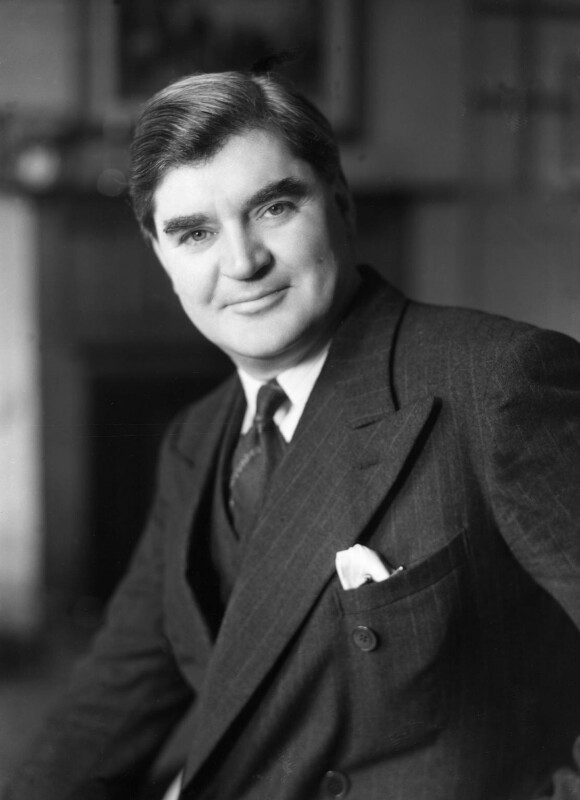
No society can legitimately call itself civilized if a sick person is denied medical aid because of lack of means
Aneurin ‘Nye’ Bevan
At the time of the NHS’s creation there was a shortage of approximately 48000 nurses. 1948 also saw the arrival in the UK of the HMT Empire Windrush from the Caribbean, marking the start in earnest of a new, multicultural era. Many of those arriving as part of the Windrush generation filled essential roles in the British workforce, including within the NHS. The NHS, its nurses and its midwives were and remain to this day a beacon of diversity. Florence Nightingale, though not noted as an advocate of inclusivity, had done much through her exacting standards to transform the image of nursing and mould it into a respected profession and the nurses who filled the first vacancies within the NHS were members of a discipline with strict codes of conduct. While it certainly takes a special kind of person to become a nurse or a midwife and there is a tendency to think that those doing this work are answering a calling of some kind, there is no doubt that nursing and midwifery are careers in which professional satisfaction and remuneration are paramount. In the early days of the NHS, nursing was considered very much a vocation to the point where nurses were essentially expected to sacrifice virtually all other aspects of their lives in order to commit themselves fully to their patients. In addition to being required to live in designated nurses’ accommodation and attend classes on top of long split shifts (that essentially had them on the go from 7am to 9pm), for many years nurses were not permitted to marry and were forced to abandon nursing if they did. Of course, these restrictions are no longer in place but healthcare workers at all levels are still expected to devote themselves overwhelmingly to their patients in even the most challenging and adverse circumstances. And they do. There have been narratives in recent months describing our nurses and doctors as heroes in the face of COVID-19 and they certainly are heroic, going above and beyond to administer care for the British public. But we must be careful not to normalise and promote expectations of sacrifice.
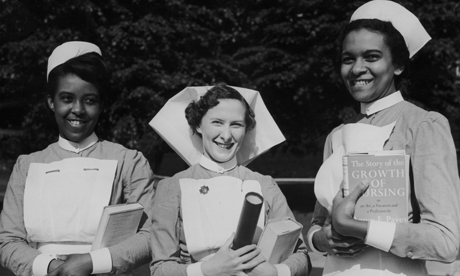
Photograph: Meager/Fox Photos/Hulton Archive/Getty Images
“It’s so important that people know there was a time before the NHS. It makes them appreciate it more.”
Bevan’s plan for health reform did not necessarily live up to expectations immediately. The switch from control at a local governmental level to national inevitably caused tension and administrative problems, and conditions for some patients, such as the elderly, lagged behind for some years. There were also issues for domiciliary midwives, district nurses and health visitors; these very important aspects of public health were treated as something of a poor relation and not given the attention, consideration and resources they deserved in the early days of the NHS. Home births are unusual in our current era but it was only in the seventies that the hospital delivery became the norm so it was certainly remiss for domiciliary midwifery to be neglected. As the NHS entered the sixties and was firmly established, its nurses began to grow in confidence and independence within this brave new world of publicly funded healthcare. Hierarchy was considered key and strictly enforced, something of a double-edged sword; junior nurses adhered to more menial tasks but these gave them high levels of patient contact, a vital source of satisfaction. The rule of ward matrons was unquestioned and absolute, and interaction with doctors was minimal. This has of course changed much over the 70 years since the NHS’s inception. The 1966 Salmon Report recommended changes to the structure of senior nursing positions and effectively heralded the end of the matron role. The impact of this has been debated, and accounts from nurses working in the NHS at the time of this change express concern over ward management being handed over to those with less direct experience. However, a change for the better has been an increased emphasis on interprofessional working over the decades, especially since nursing and midwifery have entered the sphere of higher education. This approach has helped erode barriers between hospital staff and produce a patient-centred system of care that relies on cross-team working and is much more conducive to wellbeing and recovery.
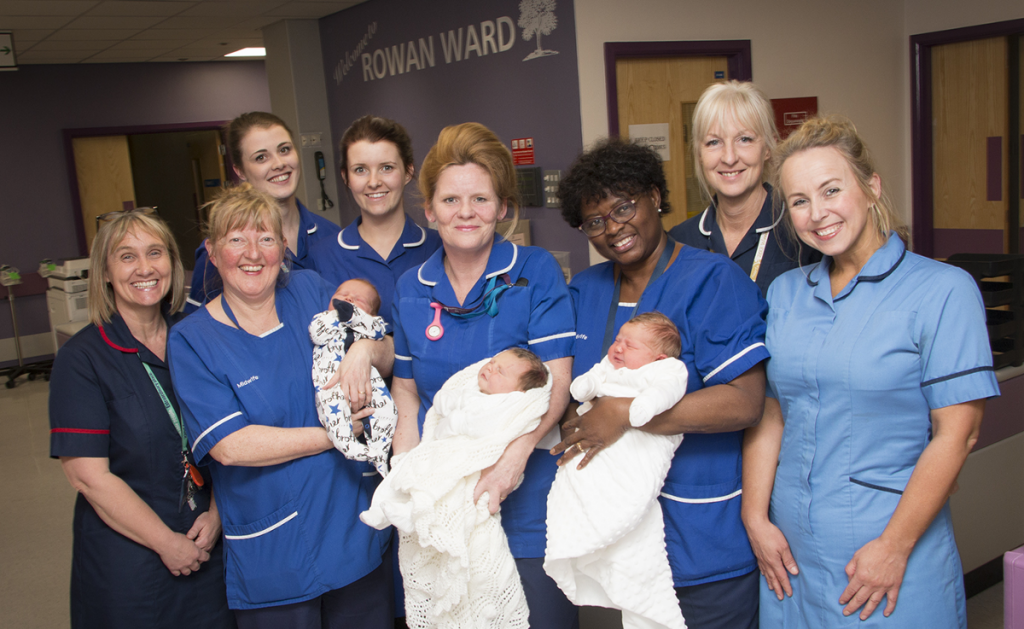
Photograph found at: https://medium.com/midwifery-around-the-world/midwifery-in-the-nhs-44eddb25bae7
The NHS is one of the most humanitarian acts that has ever been undertaken in peace time
Stuart Hall
This blog was written with the aid of CCCU’s online resources, a collection rich with journal articles, ebooks reports, reviews, and more. In particular, the following articles were incredibly helpful and informative and I would highly recommend them if you would like to read more about the history of the NHS and of nursing and midwifery in the UK. Some provide an overview of key events and some explore various aspects and topics relating to historical healthcare in depth.

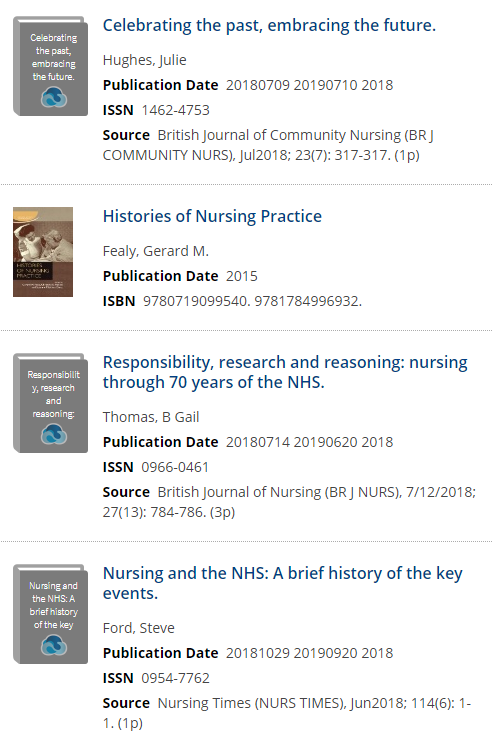
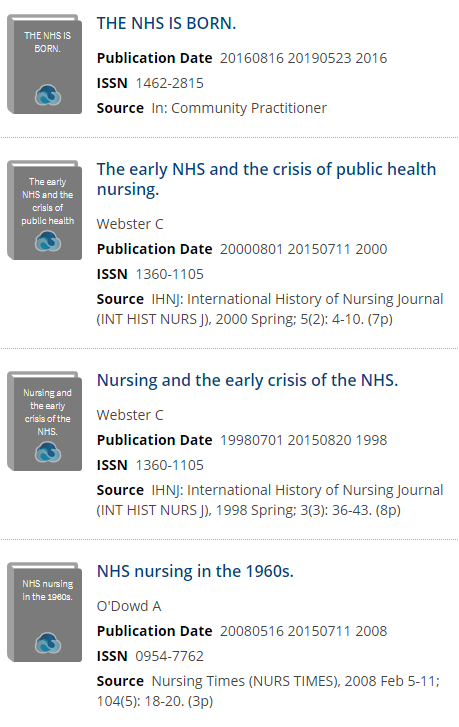
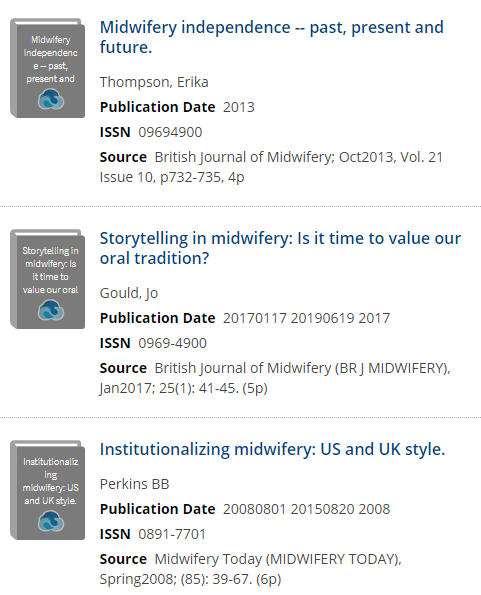
A brilliant feature of LibrarySearch is the ability to save item records as favourites in lists and I found it very handy to keep my resources collated this way as I was researching and writing – just make sure you log into your account and convert your temporary list to a saved one! We are also compiling a playlist dedicated to nurses and midwives on Box of Broadcasts, which you can find here: https://learningonscreen.ac.uk/ondemand/playlists/263514, with episodes of documentary series, dramas, and comedies all with a healthcare theme.
We are currently experiencing incredibly uncertain and frightening times but one thing that certainly brings me comfort and reassurance is our NHS and the people that devote their working lives to the care of all those that need it. Our nursing and midwifery students and graduates perform vital services every day and from the bottom of our hearts we say: thank you. You are the present and future of healthcare in this country and we are all so grateful for and proud of all that you do.
It [the NHS] will last as long as there are folk left with the faith to fight for it.
Aneurin ‘Nye’ Bevan
 Library
Library Emma Latham
Emma Latham 3722
3722